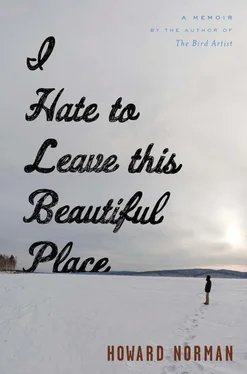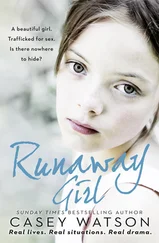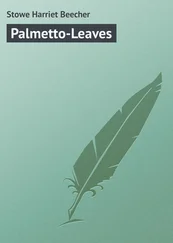“In my own way.”
“You know what the joke is about Woodstock? Because of all the dope and LSD and stuff? The joke is, if you remember Woodstock, you weren’t really there.”
“So then, by those lights, I wasn’t there. But still I remember it.”
The plane had departed Regina at dusk and lost radio contact somewhere between the airport and Kyle, in north-central Saskatchewan province. The wreckage was found scattered and smoldering. Mathilde had been the only passenger. She always scrupulously worked out a strict budget for her painting sojourns; transportation was always the most difficult part to afford. The pilot’s and her body were incinerated; Mathilde’s identity was forensically verified by dental records. The inventory of possessions in her motel room in Kyle included toiletries, canvases, paintbrushes and tubes of paint, turpentine, postcards, a book of watercolors by Toulouse-Lautrec, and a book of watercolors by Egon Schiele. Her remains and her paintings were sent to London; she was buried there within walking distance of her parents’ townhouse. When I wrote to extend my condolences, Mathilde’s mother’s return note read: “Thank you. Although we did not know any of you, it is a comfort to know that Mathilde had so many Canadian friends.”
The trajectory of a life sponsored for any period by unresolved conversations and love, and then abruptly deprived of these things, is something to behold, let alone experience firsthand. In the immediate aftermath of Mathilde’s death I did a number of things without rhyme or reason, but perhaps with what the poet Denise Levertov called, in a lecture I heard her give, “the marionetting of the whole person by an invisible hand, the sorrow dance.” Whoever or whatever was in control of my life over the next six or so months, it wasn’t me. Quite often I’d simply fall off a curb.
Amid this disorderly order of psychological incidents, as I have come to think of them, I decided to take Isador up on his offer to get me work at the Lord Nelson Hotel. He had given me a magazine article titled “Hold Your Tongue,” which contained advice about how to know when a person should, and shouldn’t, keep his opinion to himself. I had a low opinion of this article. But Isador said, “It’s useful for a bellman.” He had set up an interview with the personnel director of the hotel. I put on my dark brown herringbone sports coat, black trousers, beige shirt, necktie, and black dress shoes, and arrived early for my two P.M. interview.
As soon as I stepped into the lobby, however, I noticed two young women carrying a painting of tropical birds, walking toward a conference room down a hallway off the lobby. I followed them and discovered that an auction was in progress. I knew that on occasion private auctions were held in the hotel. This one dealt primarily with eighteenth- and nineteenth-century zoological and botanical book illustrations, and a few other drawings and paintings as well. There were approximately forty people in attendance, along with the auctioneer and his staff. I sat in the back row as if I’d been invited.
Looking around, I saw that I was properly dressed for this auction. I sat through the bidding for half a dozen works. I sensed a certain acquisitive fever in the air, but by and large the auction was all etiquette and protocol, and for me every moment was an education. People were forking over impressive sums of money, upward of five thousand dollars for a drawing, which to me was an unimaginable amount. Then a late-eighteenth-century work, Laughing Gull, painted by Mark Catesby, was put on the easel, and bidding started. I cannot say what got into me, but when the auctioneer reached the point of asking, “Do I hear three thousand?” I shot my arm in the air like a schoolboy excitedly wanting to answer a question. At that time I had around eighty dollars in my savings account.
I was startled when the auctioneer addressed me directly. “Sir, are you representing yourself?”
“Yes,” I said.
“Very well,” he said. “We have a bid of three thousand. Do I hear three thousand five hundred?”
A woman in the front row held up a kind of paddle. The auctioneer said, “We have thirty-five hundred. Mark Catesby, first reproduction of the original for portfolio— Laughing Gull. Provenance fully verified. Do I hear four thousand?”
“Four thousand!” I said.
“Four thousand once. Four thousand twice. Sold — for four thousand dollars.”
Not to mention the commission due the auction house.
I’d missed my interview. Isador was not pleased. I found him playing checkers with the chef in the restaurant’s kitchen. The chef said, “I’ll leave you two alone to talk. I’ve got dinner to prepare, eh?”
I sat down across a table from Isador and told him about the auction. “Did you sign legal papers?” he asked. “Did you put your John Henry on a bill of sale?”
“It was part of things.”
“Then you’re screwed — pardon my French.”
“It just happened.”
“You and birds. What did you buy again? A seagull?”
“An eighteenth-century seagull.”
“That’s been dead a long time.”
“Isador!”
“Did Mathilde like seagulls? I’m asking.”
“I’d say they were among her favorites.”
“Okay, that explains some of it, but not the whole meshuggeneh stupidity.”
“I don’t have the money to pay for it.”
“Visiting hours probably will be on Thursdays and Saturdays, and I promise not to fail you in that department. I’ll bring you lemon cake, your favorite. But I won’t hide a saw in the cake, like in the movies.”
“This is no joke, Izzy.”
“No, I should say it isn’t. Look, go in there and tell them it was a mistake. They can’t get blood from a stone. You just don’t have the money. The problem is, once you win a bid, the thing’s off the market. Plus, you signed your name. This is not good.”
“I’m screwed.”
“You need employment.”
The auction house was sympathetic, but legally unyielding. In short, we worked out reparations. I would give them five hundred dollars on the twentieth of each month until the debt was paid. I signed another document to that effect. I was asked whether I wanted to return Laughing Gull and let the auction house privately advertise its availability. This would save us all embarrassment. If someone was interested at four thousand dollars, I’d be off the hook. I should have leaped at this opportunity, but I refused it. They kept the painting in storage.
Nearly broke, in debt up to my ears, I then made another lunatic decision, which was to rent Mathilde’s vacant apartment on Robie Street. “So, you couldn’t bring yourself to live with her before — not that she didn’t ask,” Isador summarized. “So now what? You’ll live without her in the rooms you should’ve lived with her?”
“Actually, it’s five dollars a month cheaper than my room is now.”
“See it how you wish,” he said.
I paid the landlord fifty dollars for the first month’s rent, plus a twenty-five-dollar security deposit, which left me with five dollars in the bank. “Look,” Isador said one evening — he was providing me dinner at the hotel; meat loaf, mashed potatoes, asparagus, a small salad, pie for dessert—“you’re just twenty and already your nerves are shot. Try to put your ducks in a row, seeing as how you like birds so much — go out and get a job. Just promise me one thing, all right? Don’t live alone with that seagull on the wall. Get a nice colorful quilt. I’ll give you a typewriter from hotel storage. Type up some ideas and try to sell them to the newspaper again. Why not? Any luck with radio writing?”
“Not yet.”
We ate and had some laughs. Isador said, “Guess what’s on the TV at eight o’clock? The Maltese Falcon. Want to watch it?” So we settled down in Isador’s small living room and watched The Maltese Falcon, with Peter Lorre playing a character named Joel Cairo. “He is sinister in this one,” Isador said. “My feeling about that strange voice Lazzy always used is that as an actor his soul was without portfolio. Because just try and figure out which country he’s from, from the accent.”
Читать дальше












